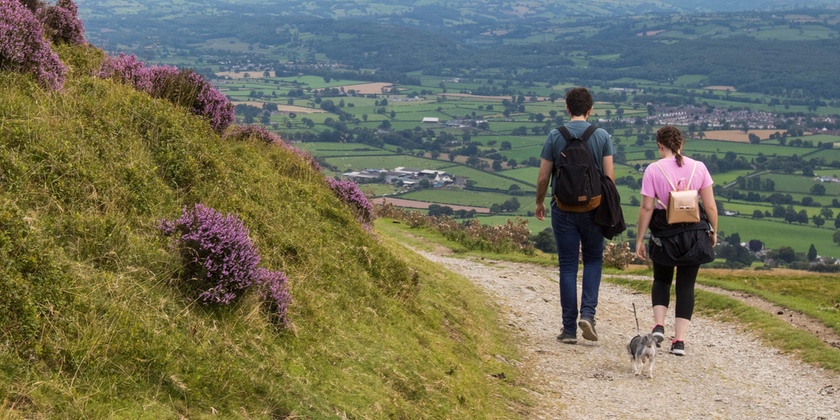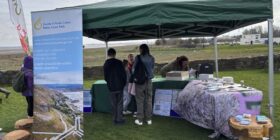Owners urged to keep dogs on leads to protect birds as breeding season begins

Natural Resources Wales (NRW) and RSPB Cymru are calling on dog owners to help protect vulnerable ground-nesting birds this spring by keeping dogs on leads during the breeding season.
The organisations are working together to help safeguard threatened species such as Curlews, Skylarks, Nightjars, and Oystercatchers during this critical nesting period, which runs from March to August.
Such birds are susceptible to disturbance from unsupervised dogs at this time of year, which can cause them to abandon their nests through fear, leaving eggs and chicks unprotected and at risk of perishing if left alone for too long.
Many birds nest on the ground or just above it—in long grass, dunes, heathlands, or low shrubs—making their well-camouflaged nests hard to spot.
Unsupervised dogs can easily disturb or damage these fragile sites, causing adult birds to abandon eggs or chicks, which may not survive if left alone too long.
The number of nesting birds in the British countryside continues to decline, with a study by RSPB, Birdlife International, and Czech Society for Ornithology revealing a drop of 600 million breeding birds in the UK and EU since 1980.
Such disruptions can have long-lasting effects on bird populations, drastically impacting breeding success and survival rates.
Both NRW and RSPB Cymru warn that even the most well-behaved dogs can unintentionally cause distress or damage to wildlife.
They are urging owners to keep dogs under close control or on a lead, and on marked walking paths during the spring and summer months to help protect vulnerable bird species.
Alison Roberts, Specialist Advisor for Responsible Recreation at Natural Resources Wales said: “As spring arrives, many will explore Wales’ countryside with their dogs, but it’s important to follow the Countryside Code and be mindful of wildlife.
“Rare and threatened birds will begin breeding across the country in open areas like grasslands, heathlands, moorlands, coastal regions, wetlands and farmland including several migratory species who will have travelled thousands of miles to breed in the UK.
“Ground-nesting birds are very vulnerable during this time, with some now endangered due to habitat loss, predators and human disruption, including dog walking.
“Always keep your dog in sight and only let them off the lead if the law allows and if you can be confident your dog will return on command. Taking these steps will ensure birds can raise their young undisturbed so future generations can enjoy Wales’ natural beauty.”
All wild birds, their nests, and eggs are legally protected in Wales under the Wildlife and Countryside Act 1981, which makes it an offence to intentionally kill, injure, or take any wild bird, as well as take or destroy any of their nests while they are in use or being built.
In order to protect ground-nesting birds, it’s also a legal requirement to keep dogs on leads no longer than two metres while on open access land between 1 March and 31 July. People risk fines of up to £1,000 if they fail to do so.
Julian Hughes, Head of Species at RSPB Cymru said: “Most dog owners are responsible and passionate about nature and want to avoid harming it.
“Some of Wales’ most endangered breeding birds’ nest on the ground, which means that they’re extremely vulnerable to disturbance.
“That’s why we’re asking everyone to mind their step while they’re out and about and keep dogs on a lead this spring and summer.”
Ground-nesting birds can be found in almost every countryside habitat—coastal beaches, wetlands, heathlands, grasslands, and farmland. Species like Lapwings, Redshanks, Oystercatchers, and Curlews are especially at risk.
Alison also reminded dog owners to clean up after their pets. Dog waste can harm soil quality, carry health risks, and endanger livestock.
“By following the Countryside Code, everyone can be sure they are spending time in nature responsibly and respectfully, protecting the environment and our ground-nesting birds for years to come,” she said.
Spotted something? Got a story? Send a Facebook Message | A direct message on Twitter | Email: [email protected] Latest News








